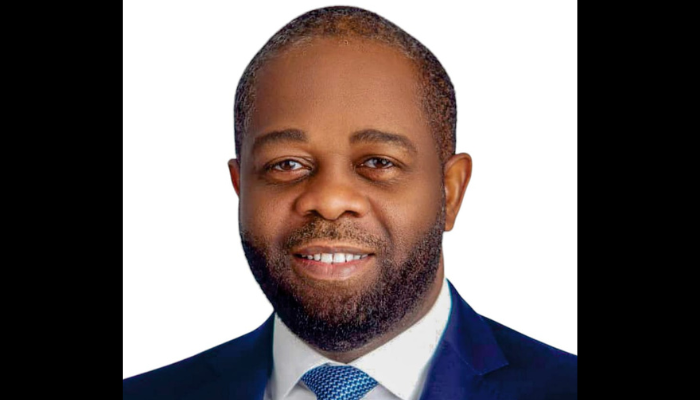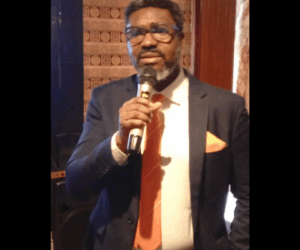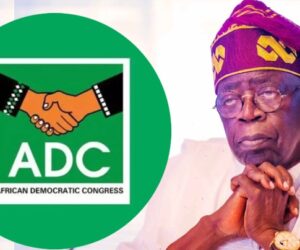Director-General of Nigeria’s National Health Insurance Authority (NHIA), Dr Kelechi Ohiri
In this exclusive interview with BusinessDay’s General Manager for Abuja and the North, Bashir Ibrahim Hassan, Director-General of Nigeria’s National Health Insurance Authority (NHIA), Dr Kelechi Ohiri, discusses the country’s bold push to reform health care financing and achieve universal health coverage. Speaking candidly about the gaps in Nigeria’s fragmented health system, from heavy reliance on donor funding to the staggering 70% of health expenses paid out-of-pocket, the NHIA Chief outlines the agency’s plan to align federal and state funding, enforce mandatory health insurance, and scale coverage through innovative policies. He also reflects on the just-concluded four-day national dialogue on health financing, the new executive order empowering NHIA to enforce compliance, and a vision for a future where no Nigerian is impoverished by the cost of care. Excerpt…
As the Chief Executive Officer of Nigeria’s National Health Insurance Authority, within the context of your work, how do you imagine the future of health care financing in Nigeria?
Thanks for that. That’s central to this discussion. When we began, we knew about future health. The way we financed health care was not working, so we must first understand that when thinking about its future. There was a lot of dependence on external support, which was unpredictable and operated in parallel to our own systems. In many instances, governments did not have a good handle on who was funding what and where. This led to duplication and gaps.
Second, because we have a federal structure in Nigeria, it is always hard to decipher what the federal government is doing, what the state is doing, and what the local government is doing. We often see primary health care centres funded by the federal, state, and local governments, as well as external partners, because of Nigeria’s federal nature. The autonomy of these entities meant there was no alignment in their actions.
Third, when you look at overall healthcare spending, about 70 percent is out-of-pocket. That was not where we wanted to be as a country, so the poor quality of care and poor outcomes were not surprising. We always knew we had to do something differently.
When the minister started, he led, on World UHC Day, in December 2023, by signing a compact between the federal government and the states. That was very important because before addressing external funding, we needed to align internal funding so it could be more effective. By signing that compact and developing annual plans, we aimed to ensure that the federal and state governments were aligned on priorities. For example, we all agreed that maternal and infant mortality were unacceptable, and we should all finance interventions to address them.
“The President, through the Secretary to the Government of the Federation (SGF), has issued a service-wide circular to all agencies to ensure compliance. This gives us the authority and backing we need to implement health insurance at scale.”
This compact was the first explicit agreement for federal and state governments to coordinate and tackle the health care system together. The second step we started was the sector-wide approach, designed to create better transparency for donor funds, ensuring a single source of truth and accountability. If partners come to support malaria treatment in Akwa Ibom State, for example, we can prevent duplication and ensure resources are directed to underserved areas.
The third issue is out-of-pocket expenditure, which is deeply concerning because few things catapult people into poverty like health care costs. As someone said, a healthy man dreams of many things; a sick man dreams of only one thing—to be healthy. People paying out of pocket is very scary and not the way to go. This is why institutions like the NHIA exist: to ensure you don’t pay for care out-of-pocket when you need it. I envision a future in which health financing in Nigeria will no longer rely on out-of-pocket payments but will be prepaid through insurance programmes or subsidised by government assistance. All our plans are geared toward reducing out-of-pocket expenditure and increasing the number of Nigerians who are financially protected from health care costs.
“By signing that compact and developing annual plans, we aimed to ensure that the federal and state governments were aligned on priorities. For example, we all agreed that maternal and infant mortality were unacceptable, and we should all finance interventions to address them.”
You’ve been here since the start of this event, from Monday through to today, Thursday. Before I get to my second question, could you walk us through how this dialogue came about—especially given that it was designed to spark frank and difficult conversations about the future of health financing in Nigeria?
First, the dialogue definitely exceeded my expectations. for four days. When I think about it, I wonder, “What were we thinking? Four days for a meeting?” It went very well because people were frank, and they asked challenging questions. The fact that people felt comfortable enough and felt it was important enough that they stayed for four days.
However, we had these conversations, and they were not tailored or guided. These were open conversations. I believe the President’s directive on the mandate was a very big one for me. This is something that, since the NHIA Act three years ago, we’ve been trying to see how to move forward.
Now that you’ve attended all four days of this dialogue, what would you say are your biggest takeaways from the event?
First, this is an affirmation of the fact that we need a collaborative approach to doing this. That’s number one.
Second, there are numerous opportunities at the sub-national level due to the fiscal reforms implemented by the President that have emerged from what we are doing, and there’s a need to focus on how to tap into that by working with states and local governments to create a platform for pooling financing to tackle these issues more deliberately. I see a big opportunity in that regard.
Thirdly, I observed that development partners spoke differently. Usually, conversations in Nigeria have been ones where we are “talked at”, but this time, I saw a government being very clear about taking action, and their tone was much more supportive and encouraging of where we are going. I think that’s healthy. And I think it’s also healthy that they hold us to account.
Looking back at everything that’s been discussed over these four days, what insights or new information have changed or reshaped your opinion on the issues surrounding health financing in Nigeria? How will things differ now in terms of implementing the ideas we’ve heard from the delegates, and when might we expect to see policies emerge from this?
Well, I think we first need to take some time to reflect and digest everything we’ve heard. Then we need to begin to reach out to a few stakeholders and start working with them on very concrete things to do.
For instance, if we’re working with civil society, and many commitments have been made, we need to make this more practical: How often do we want to engage? What can we do differently to ensure Nigerians are informed about what is happening?
One area that normally doesn’t come up is the research agenda. I was speaking to someone about how this year, we need to start looking at research that focuses on our context, what works and what doesn’t work. At the NHIA, we’re committing funds to that. For the first time, we’ll be the ones to set research priorities, fund some of that research, and use its outcomes to strengthen the programmes that the government is implementing.
For the private sector, we’ve already agreed to have a private sector conversation and dialogue, not just on the mandate but also based on what came out of Tuesday’s session. They really do want to engage, and the government is doing a lot for the private sector; we heard that from PVAC, BOI, NSIA and others.
The government is taking this very seriously and pushing reforms, but it’s an unusual situation. Usually, the government is supposed to play catch-up, with the private sector leading and the government following. But now, we’re seeing a situation where the government is driving reforms at such a pace that, if we’re not careful, we could leave the private sector behind.
So, we have to ensure we’re engaging and bringing them along. That’s very critical.
Finally, I really liked the session on the government’s fiscal policy. For the first time, we’re looking at the role of tax not just to generate revenue broadly but also as something that can be channelled towards healthcare.
You mentioned something very important — that resources, both internally and externally, are scarce. So, we must set our priorities right to ensure that whatever financing we have is used to achieve the right results. From your perspective, how well are you doing in terms of matching these priorities with the right financing?
That’s a very critical question. One of the key things we do at the NHIA is to define the benefits package carefully, focusing on what affects most Nigerians, especially the poor and vulnerable. We ensure that these areas are non-negotiable in terms of coverage and resource allocation.
For example, many of our equity programmes target maternal and child health issues, such as obstetric care and fistula repair. Much of the funding mobilised through the Vulnerable Group Fund and the sector-wide approach is directed there.
As of today, over 13,000 women have benefited from emergency obstetric care, including caesarean sections paid for under our programmes, and more than 3,000 women have had fistula repairs funded. We’re prioritising resources where they are most needed, while maintaining a strong focus on primary healthcare, which serves as the foundation for care delivery and is the first point of contact for most Nigerians.
On the Executive Order signed by the President. You seem really excited about this development. Did you see it coming? And how significant is this step for you and your team at NHIA?
I’m very happy about it, although I know it means more work for us. The executive order is a major milestone because it gives us the authority to enforce the law that health insurance is mandatory for all Nigerians and residents.
Could you walk us through the key provisions of this executive order?
Certainly. First, it mandates that all federal government Ministries, Departments, and Agencies (MDAs) ensure their staff are covered by NHIA. While many are already compliant, this makes it compulsory across the board. If agencies or workers choose to have additional private insurance, that’s fine, but all insurance must be routed through NHIA. Government workers form the initial pool that our offerings are built upon.
Second, the order requires all entities that do business with the federal government, whether through procurement, licensing, or permit renewals, to present a Certificate of Insurance issued by NHIA. This certificate proves compliance, similar to a tax clearance certificate. This is unprecedented in Nigeria; it’s the first time in the country’s history that such a measure has been put in place, and it addresses the priority being placed on healthcare.
That’s a big shift. How will this executive order change the way NHIA operates?
It’s transformative because NHIA cannot enforce this alone; it requires a whole-of-government approach. The President, through the Secretary to the Government of the Federation (SGF), has issued a service-wide circular to all agencies to ensure compliance. This gives us the authority and backing we need to implement health insurance at scale.
With this new initiative, what enrolment targets are you aiming to achieve for health insurance coverage in Nigeria?
I will not give specific numbers, but I can say this: the focus is not just on numbers but on building the right systems to scale sustainably.
How significant will this development be in shaping and advancing the work of the NHIA?
It will have a significant impact. First, it brings a lot of additional work, mainly focused on creating a strong framework. Once that framework is in place, we can use it to engage stakeholders effectively. There is still work ahead to engage these stakeholders, finalise the framework, and ensure the foundation is solid.
What plans do you have, both legally and legislatively, to ensure health insurance coverage reaches not only the formal sector but also the informal sector, including vulnerable groups and those who are not formally registered?
This initiative affects the formal sector and parts of the informal sector as well. Some informal sector players, like registered businesses, already engage with the government through procurement, licence renewals, and permits, so compliance will naturally extend to them. For the larger informal sector, our strategy is to work through associations. In Nigeria, every group, including mechanics, welders, painters, and market traders, belongs to an association.
We are piloting this approach with professional associations like the NBA and MMA, engaging their executives to spread awareness. Civil society and the media will also play a vital role in amplifying this message.
Another key step is making enrolment simple. We’ve launched an online platform that allows people to sign up immediately, without visiting our offices. The goal is to make health insurance accessible and convenient for everyone.
What is your vision or stretch target for health insurance enrolment in Nigeria, considering that enrolment has grown from 16 million to 20 million in just two years?
Our stretch target is to double the enrollment by 2030, which means adding at least 20 million more enrollees over the next five years. Of course, if we exceed this target, we won’t stop: this is a benchmark to guide progress, even as we factor in population growth and new births.
Could you update us on the progress of Health Technology Assessment (HTA) in Nigeria, where it was before, where it is now, and where it’s heading?
HTA was virtually non-existent before, but now we are building capacity, developing a framework, and institutionalising this approach. HTA will guide decisions about which drugs, devices, and medical interventions to prioritise, based on evidence, culture, ethics, and values. The goal is to ensure we fund and support what truly works, making health system priorities more evidence-driven.
Among all the questions asked during this event, which one or two stood out and made you see things differently?
All the questions were fair and reflected the perspectives of different stakeholders. However, the ones from the private sector stood out, as they highlighted the need for the private sector to catch up with and, more importantly, be part of government-led reforms. The government is not antagonistic toward the private sector; rather, we are working to create a society where they are key partners in delivering public goods.









